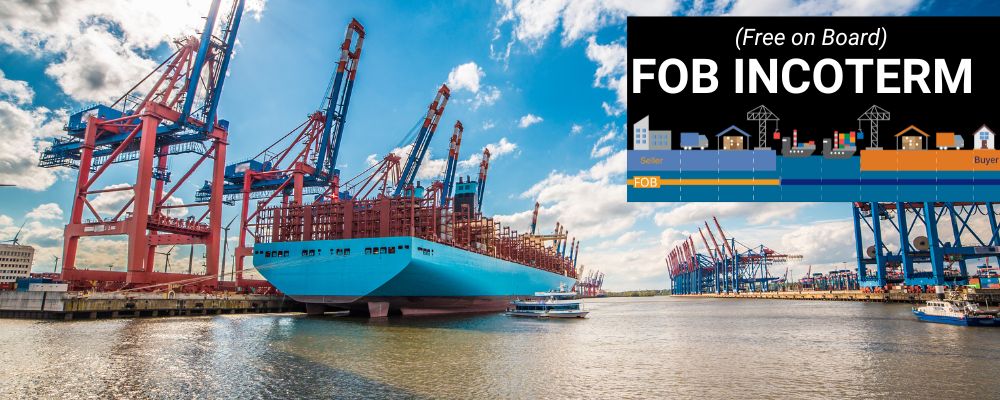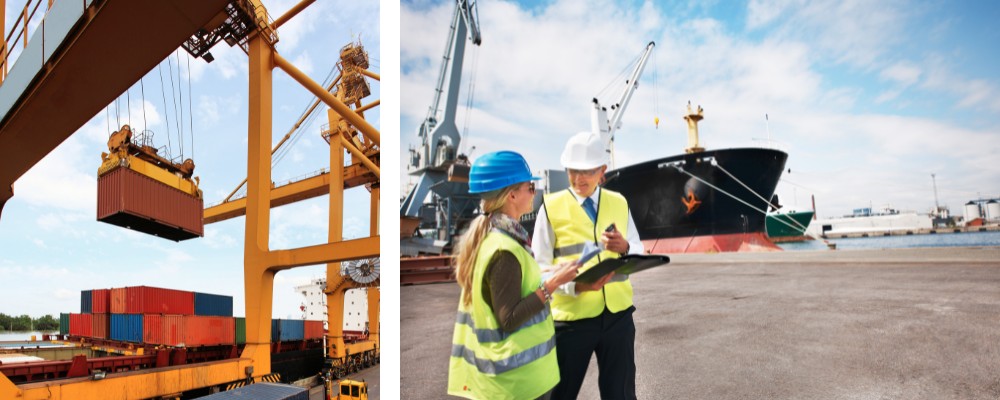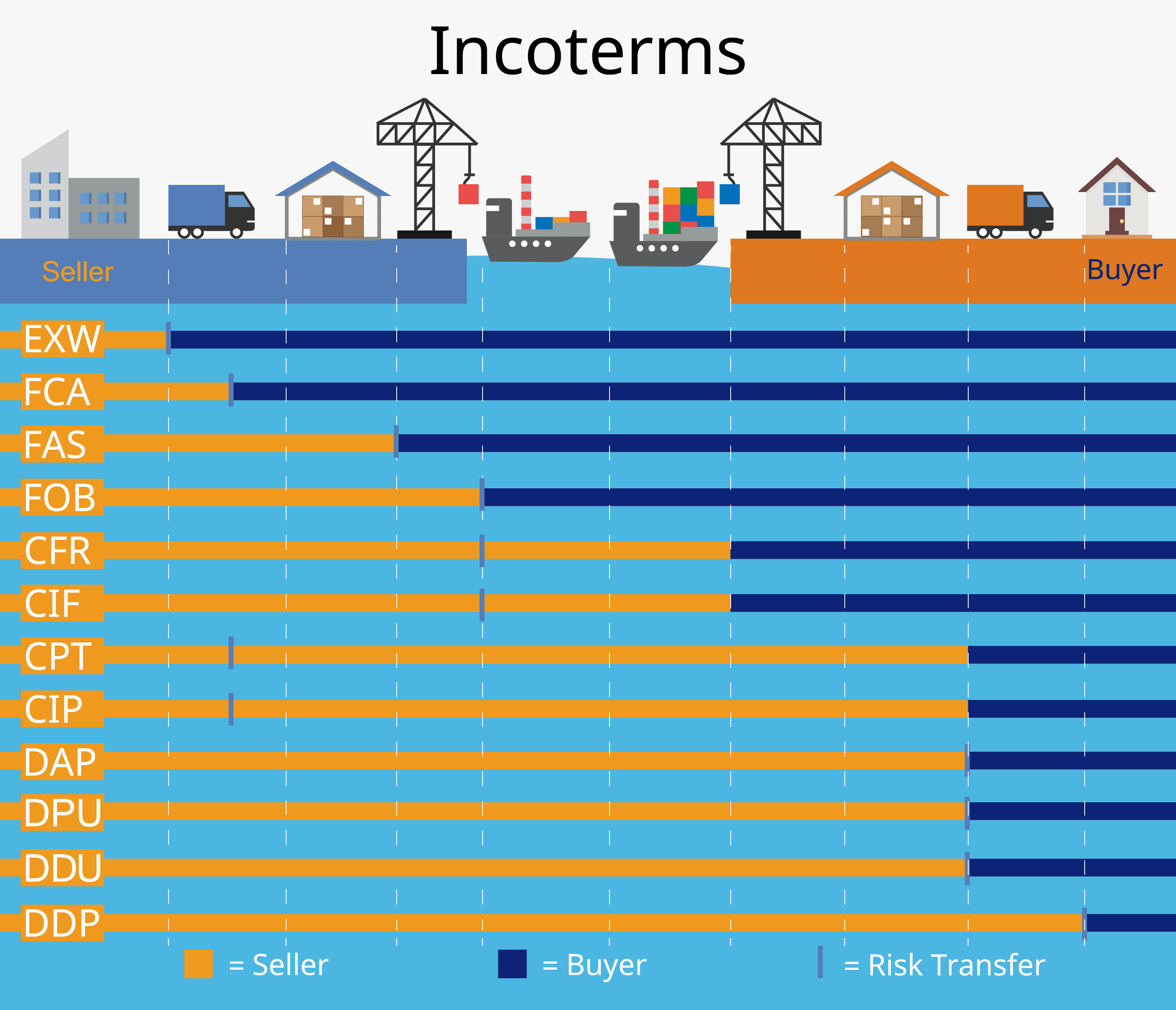
What exactly does it mean? How does it work? And most importantly, why should you care about it? In this blog post, we will submerge into the world of FOB Incoterm and explore its use and meaning. So grab your passport and get ready for an enlightening journey through the complexities of global commerce!
What is FOB Incoterm?
What exactly is FOB Incoterm? Well, FOB stands for “Free on Board,” and it is an internationally recognized trade term that defines the obligations and responsibilities of buyers and sellers in a shipping transaction. Specifically, FOB refers to the point at which ownership and risk of goods transfer from the seller to the buyer.
When using FOB Incoterm, it means that the seller assumes responsibility for delivering the goods to a specified port or vessel designated by the buyer. Once the goods are loaded onto this vessel, ownership transfers to the buyer, who then becomes responsible for any costs or risks associated with transportation.
It’s important to note that FOB only applies when goods are being transported by sea or inland waterway. For other modes of transport such as air or land, different Incoterms like CIF (Cost, Insurance Freight) or EXW (Ex Works) would be more appropriate.
By clearly delineating where ownership shifts hands during transit, FOB provides clarity and protection for both parties involved in international trade transactions. It ensures that each party understands their rights and responsibilities throughout every stage of shipment.
Understanding what FOB Incoterm entails can help businesses navigate global trade more effectively. It allows them to negotiate contracts with confidence while minimizing confusion or disputes that may arise from unclear terms regarding ownership and risk transfer. So whether you’re a seasoned importer/exporter or just dipping your toes into international waters, grasping this fundamental concept will undoubtedly prove beneficial in your journey through global commerce!
How does FOB Incoterm work?
FOB, which stands for Free on Board, is an international trade term that specifies the responsibilities and obligations of buyers and sellers during the transportation of goods.
When using FOB Incoterm, the seller is responsible for delivering the goods to a designated port or vessel, at which point ownership and risk transfer from the seller to the buyer.
The process begins with the seller ensuring that goods are packaged properly and ready for shipment. They then deliver them to a specific port or vessel as agreed upon in their contract. Once they have arrived at this location, responsibility shifts to the buyer who becomes accountable for any further costs or risks associated with transporting the goods from this point onwards.
FOB Incoterm can be advantageous as it provides clarity in terms of where ownership is transferred along with clearly defined roles and responsibilities between buyer and seller. By specifying a particular delivery location (port/vessel), it eliminates ambiguity regarding who is responsible until that point.
However, there are also disadvantages to consider when using FOB Incoterm. Buyers may face unforeseen costs once they take possession of goods due to potential damages incurred during transportation or delays in delivery schedules beyond their control.
In comparison to other incoterms such as CIF (Cost Insurance Freight) or EXW (Ex Works), FOB places more responsibility on buyers after delivery has taken place.
It’s essential for both parties involved in an agreement utilizing FOB Incoterm to fully understand its implications before committing to ensure smooth transactions and minimize disputes down the line.

Advantages and Disadvantages of using FOB Incoterm
One of the main advantages of using FOB Incoterm is that it places the responsibility for the goods on the buyer as soon as they are loaded onto the ship. This means that once the goods are onboard, any damage or loss becomes the buyer’s responsibility. For sellers, this can be advantageous as it reduces their liability and risk.
Another advantage is that FOB Incoterm allows for greater control over transportation costs. The seller has more flexibility in choosing a carrier and negotiating shipping rates, which can result in cost savings. Additionally, since the buyer assumes responsibility for shipping after loading, they have more control over delivery schedules and arrangements.
However, there are also disadvantages to consider when using FOB Incoterm. One potential drawback is that if something goes wrong during loading or transportation, such as damage to goods or delays in shipment, it can lead to disputes between buyers and sellers regarding who is responsible.
Furthermore, with FOB Incoterm, there may be additional costs involved such as terminal handling charges at ports or fees for customs clearance. These expenses need to be factored into overall pricing considerations.
While FOB Incoterm offers certain benefits like reduced liability and greater control over transportation costs for both buyers and sellers, it also comes with potential risks and added expenses that need careful consideration before deciding to use this incoterm option.
Comparing with other Incoterms
While FOB Incoterm may be a popular choice for many businesses, it is important to consider how it compares to other Incoterms in terms of its benefits and limitations. Let’s take a closer look at some key differences:
1. CIF (Cost, Insurance, and Freight): Unlike FOB, CIF includes the cost of insurance and freight in addition to the price of the goods. This can be advantageous for buyers who prefer a more streamlined shipping process without having to arrange separate insurance and transportation.
2. EXW (Ex Works): In contrast to FOB where the seller is responsible for delivering the goods onto a vessel, EXW places the burden entirely on the buyer. With EXW, sellers are only required to make goods available at their own premises or chosen location. This may offer greater control over logistics but requires buyers to handle all aspects of transportation.
3. DDP (Delivered Duty Paid): DDP is an Incoterm where sellers bear all costs and risks until delivery takes place at the buyer’s agreed-upon destination point – including customs duties and taxes. While this provides convenience for buyers by eliminating additional charges after shipment arrival, sellers must navigate complex customs procedures.
It is essential that businesses carefully evaluate their specific needs and priorities when choosing between different Incoterms such as FOB or others mentioned above. Factors such as cost-effectiveness, risk allocation, control over logistics processes, and legal considerations should all be taken into account.









